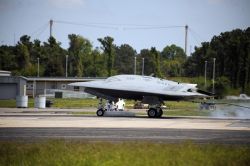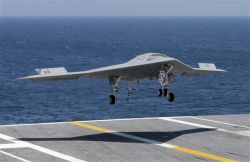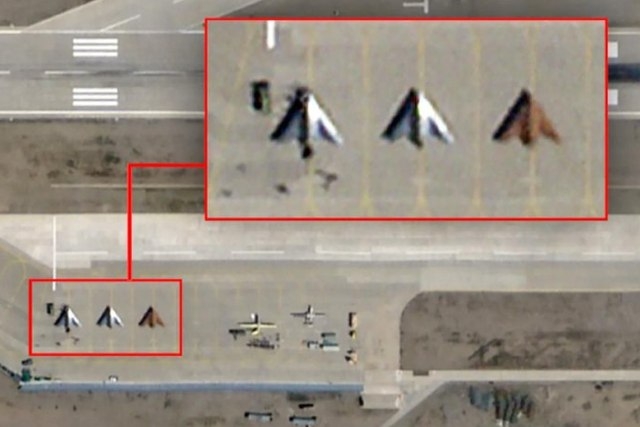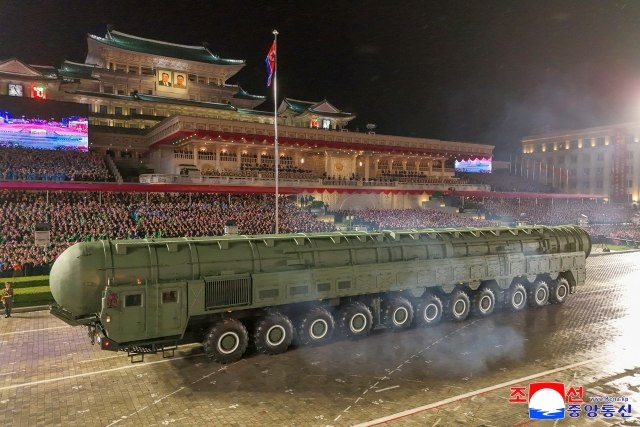X-47B Unmanned Combat Air System Completes Carrier Tests
The US Navy concluded another round of carrier testing on November 19 to further demonstrate and evaluate the X-47B unmanned air system integration within the aircraft carrier environment.
Tests aboard USS Theodore Rooseveltincluded deck handling, carrier approaches and landings in off-nominal wind conditions, digitized ship systems interfaces, and concept of operations development.
“The X-47 was tested in winds of higher magnitude and differing directions than seen in previous detachments,” said Program Manager for Unmanned Carrier Aviation Capt. Beau Duarte. “This resulted in more stimulus provided to the aircraft’s guidance and control algorithms and a more robust verification of its GPS autoland capability.”
This test phase, which began Nov. 9, also provided an opportunity for the second X-47B to make an appearance, marking the first time both aircraft appeared together in a carrier environment.
Over the flight test period, the X-47Bs performed 26 total deck touchdowns: 21 precise touch-and-goes and five arrested landings; as well as five catapults, five commanded and two autonomous wave-offs. While one X-47B operated in the vicinity of CVN 71, the second air vehicle conducted flight operations between ship and shore. Both X-47Bs are assigned to Air Test and Evaluation Squadron (VX) 23 at Naval Air Station Patuxent River.
“The Navy and industry team once again conducted productive flight operations in the CVN environment,” said Barbara Weathers, Unmanned Combat Air System deputy program manager. “The carrier systems installation and system checkouts were performed in record time, quite an amazing feat.”
The Navy will operate the X-47B throughout FY14 to conduct further land and carrier based testing to mature unmanned technologies and refine concept of operations to further inform future unmanned carrier requirements.
“The Navy is committed to developing, maturing, and fielding unmanned carrier aviation capabilities into our carrier air wings and carrier environments. This week’s successful carrier operations demonstrated the feasibility and realistic path to achieving the manned/unmanned air wing of the future,” said Rear Adm. Mat Winter, program executive officer for Unmanned Aviation and Strike Weapons (PEO(U&W)), which oversees the UCAS program.











